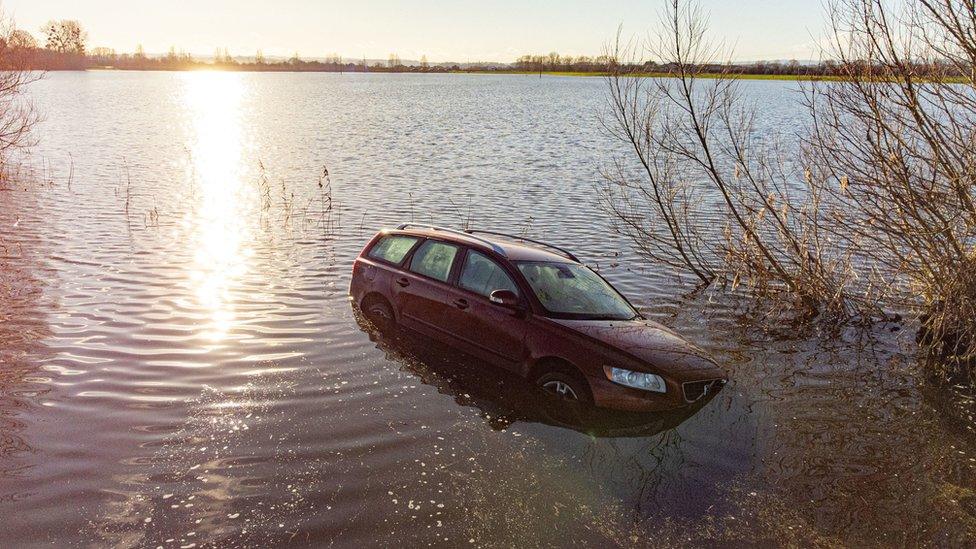Flood-hit farmers on Somerset levels say officials 'slow to help'
- Published
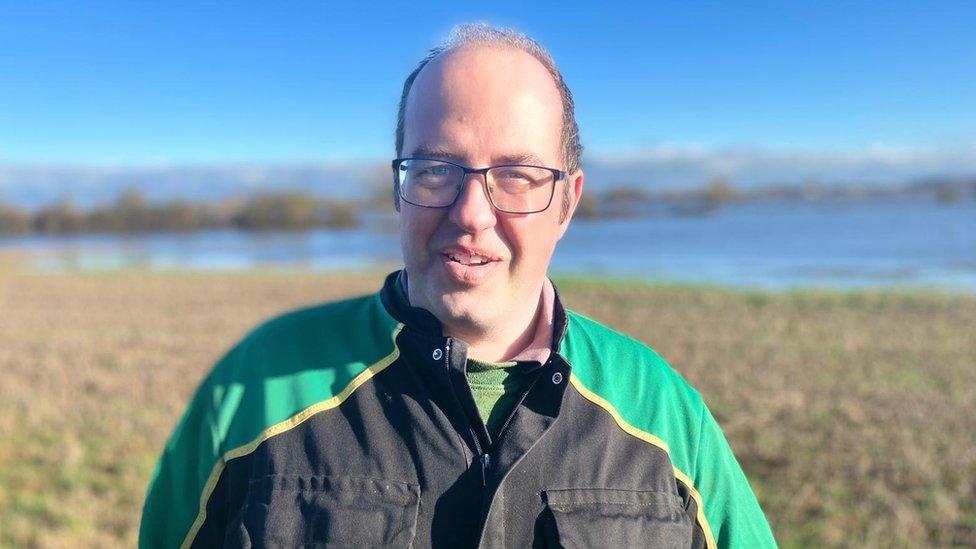
James Winslade said flooding takes its toll on the local community
Farmers are angry at the Environment Agency's "slow response" to pump out water from their flooded fields.
West Yeo Farm owner James Winslade from Somerset found his land flooded by 3ft (0.91m) overnight.
He said it could take officials seven to 10 days to put in place water pumps and blamed "red tape and paper work" for the delay.
Ian Withers, from the Environment Agency (EA), said they will "learn from the situation and do better".
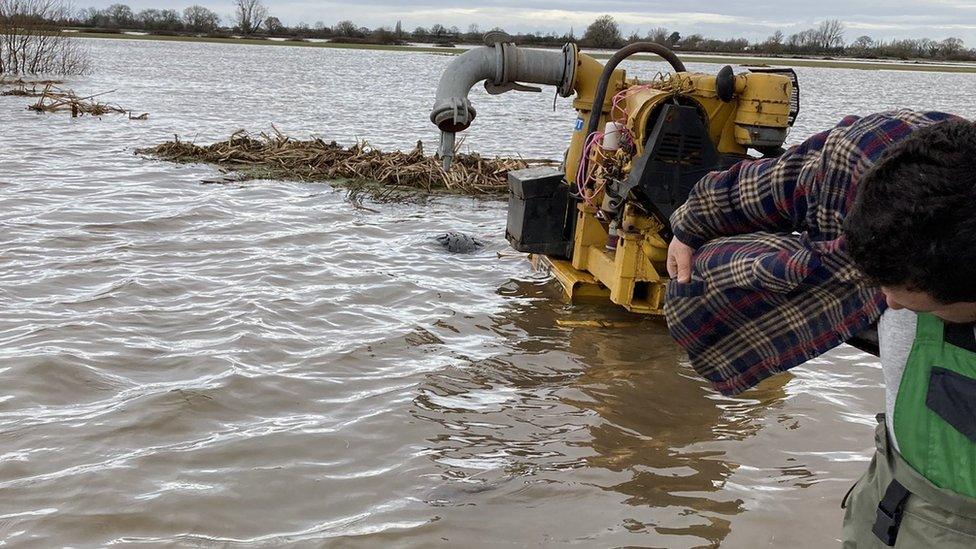
Farmers have lost grass seed and corn to feed the cattle
"We met Mr Winslade last night and explained the situation," Mr Withers said.
"The success of pumping water out of the moors relies on the rivers having capacity to receive the water, and currently the intense rain means they are full."
Several flood warnings are in place on the Somerset Levels and firefighters saved a mother and her six-month-old baby from a vehicle stuck in flood waters on Saturday.
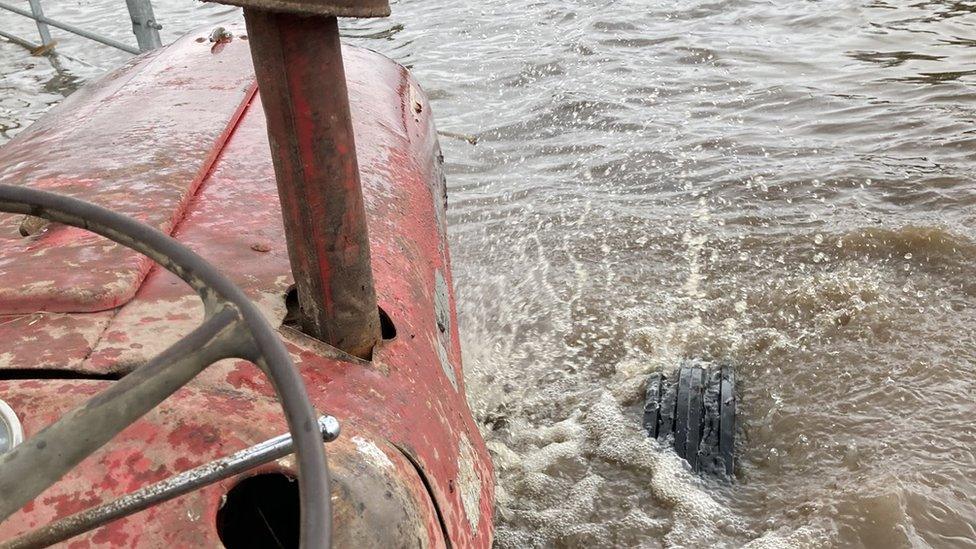
Mr Winslade said that "people's livelihoods that are going under water"
"The last few weeks have been a challenge. The moor filled up very fast," Mr Winslade, whose farm is near Burrowbridge, said.
"On the 7 January the trigger points were met and we thought the pumps would be installed straight away.
"But the EA then turned around and said it would be within seven to 10 days of the trigger points being met when they'll install the pumps.
"Our moor flooded within three days and we still don't have any pumps."
Allow X content?
This article contains content provided by X. We ask for your permission before anything is loaded, as they may be using cookies and other technologies. You may want to read X’s cookie policy, external and privacy policy, external before accepting. To view this content choose ‘accept and continue’.
He said he represents his local farming community in saying the EA's response "has not been quick enough".
"We've been told protocols have to be met and paper work needs to be signed off," he added.
"It's people's livelihoods that are going under water. We've lost grass seed, corn to feed the cattle in the winter and it's a massive cost.
"It has definitely a taken a toll on the older generation. People aren't sleeping."
Bryony Sadler, a member of Flooding on the Levels Action Group (FLAG), added that "people were on a knife edge" in the area because when they see water they are immediately taken back to 2014, when there was very bad flooding.
She added: "We've got to sort out more dredging and funding and we need to go back to sort these trigger points systems to make sure pumps come in quicker in places because the rate that the water is coming in so quick, way quicker than in 2014."
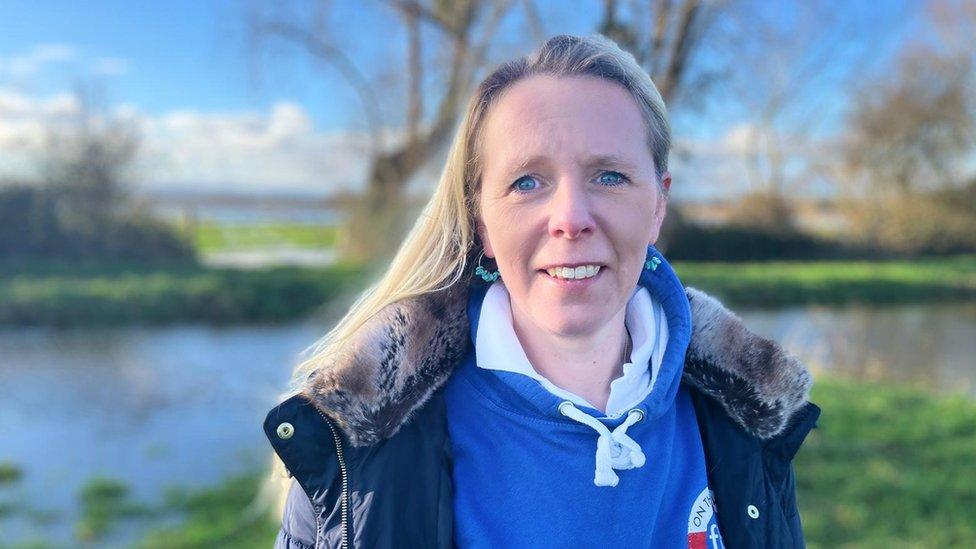
Bryony Sadler says FLAG is offering support for people in the area
Mr Withers said: "We have used every single minute of every opportunity we have to keep the levels in the moors as low as possible."
He added the EA will need to revise their models and responses as weather gets more extreme due to climate change.
"The way that rain falls is changing, there are no longer steady periods of rain, but instead, they are more intense and shorter," he said.
"The system has responded much faster, we can learn from that and do better when the rain comes more quickly.
"We are seeing more intense seasons...and that is different from the past."
The EA, which explained pumping depends on the water level in rivers, added that additional pumps at Northmoor and Currymoor could become operational later.

Follow BBC West on Facebook, external, Twitter, external and Instagram, external. Send your story ideas to: bristol@bbc.co.uk
Related topics
- Published15 January 2023
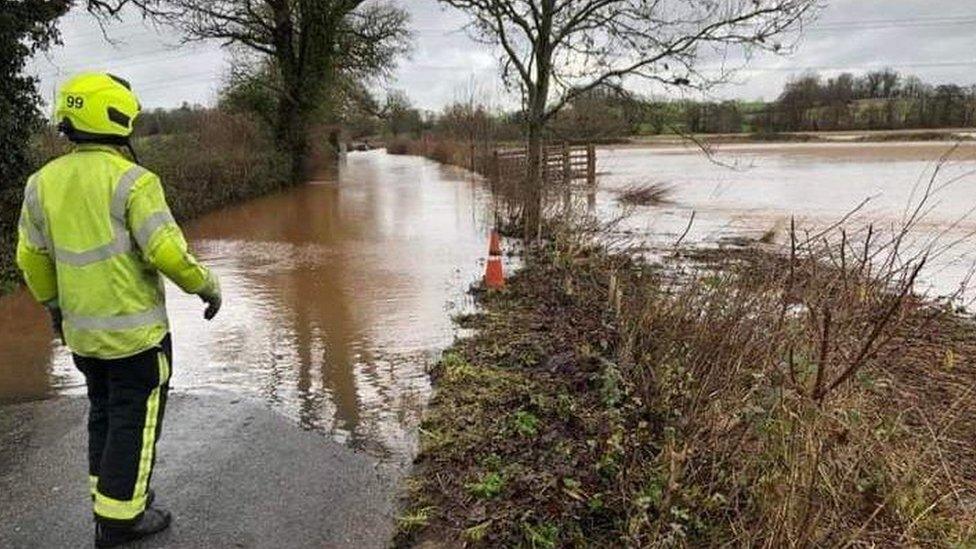
- Published14 January 2023
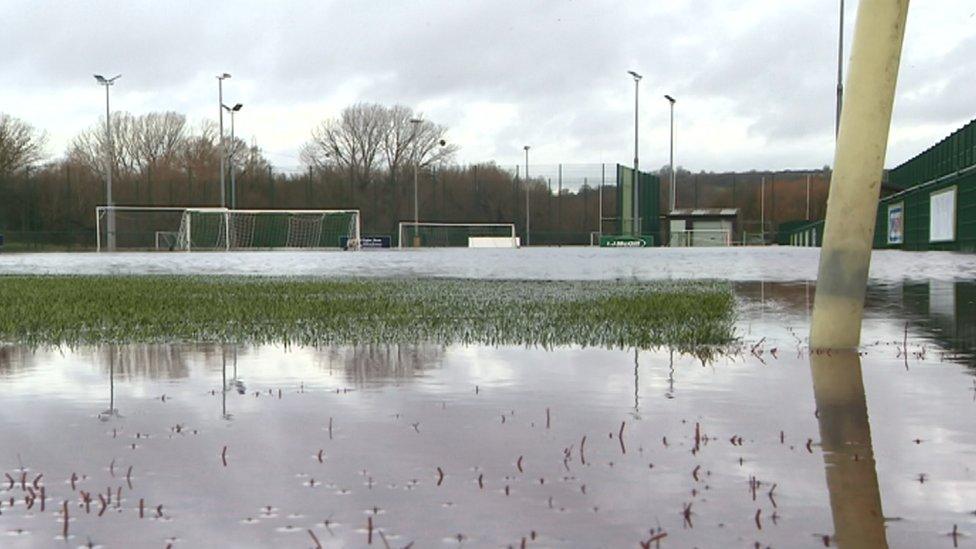
- Published13 January 2023
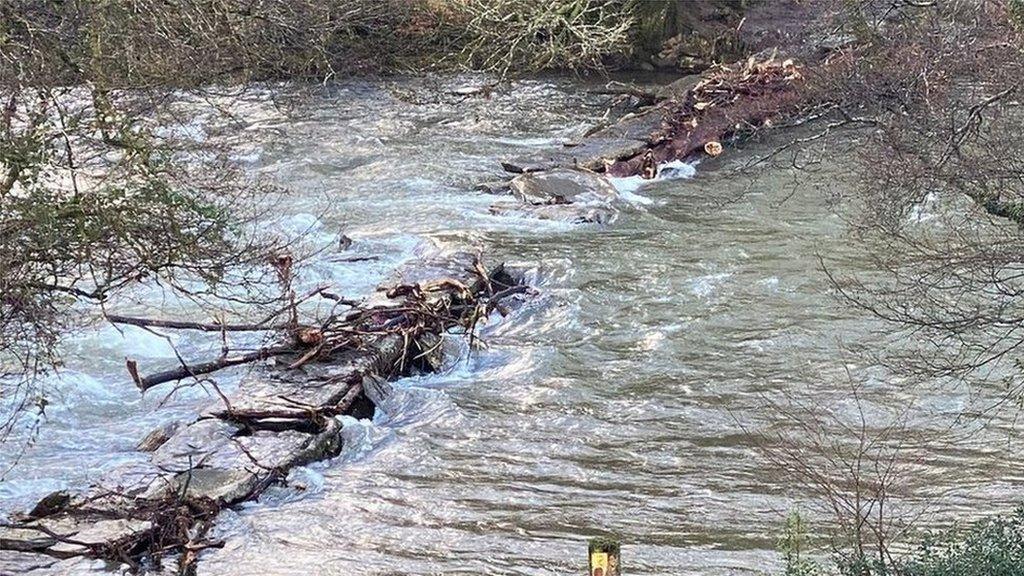
- Published12 January 2023
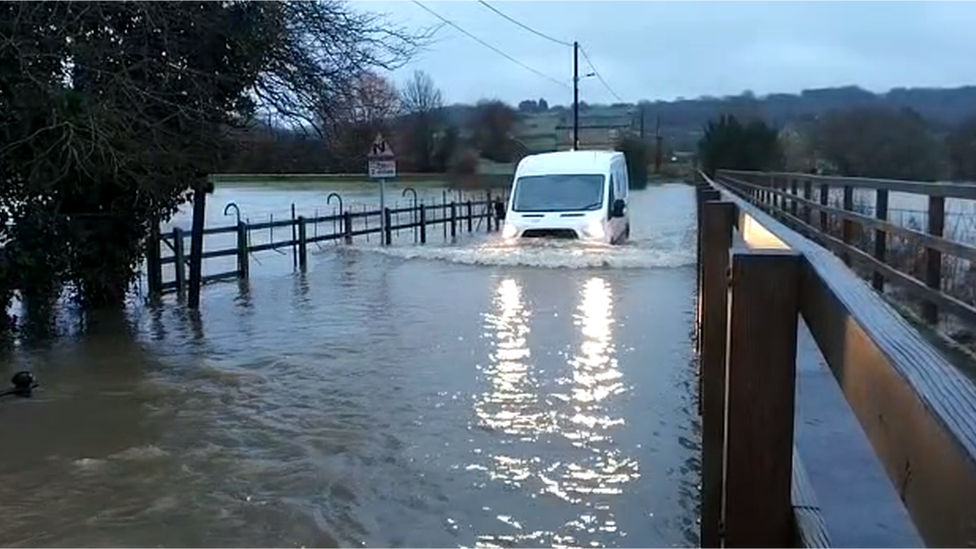
- Published6 January 2023
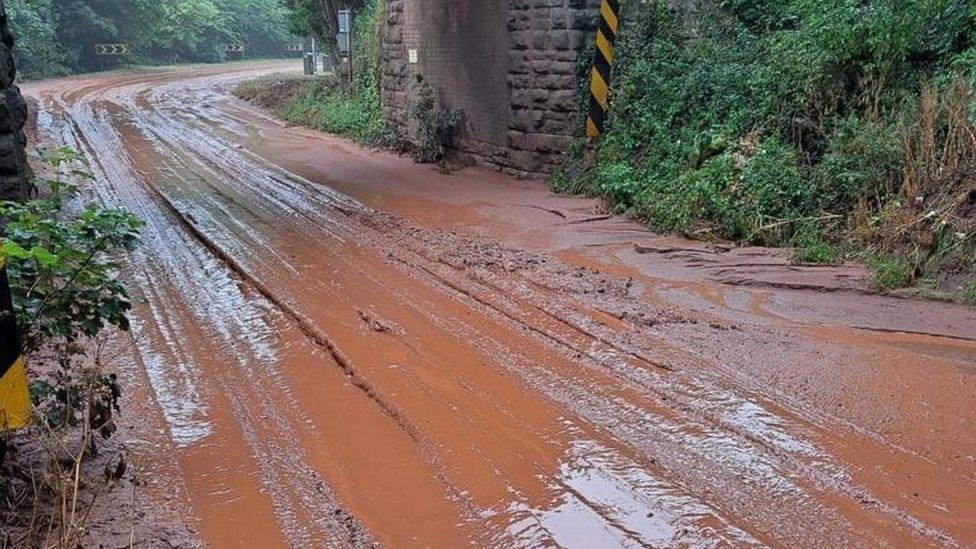
- Published3 January 2023
